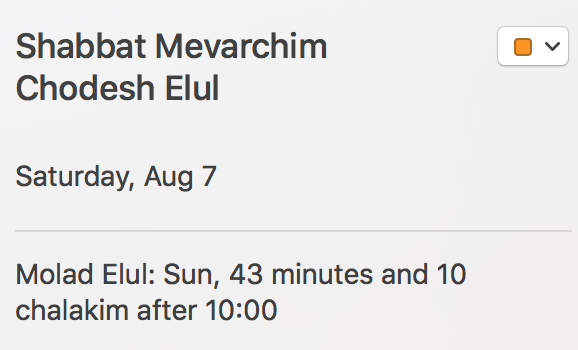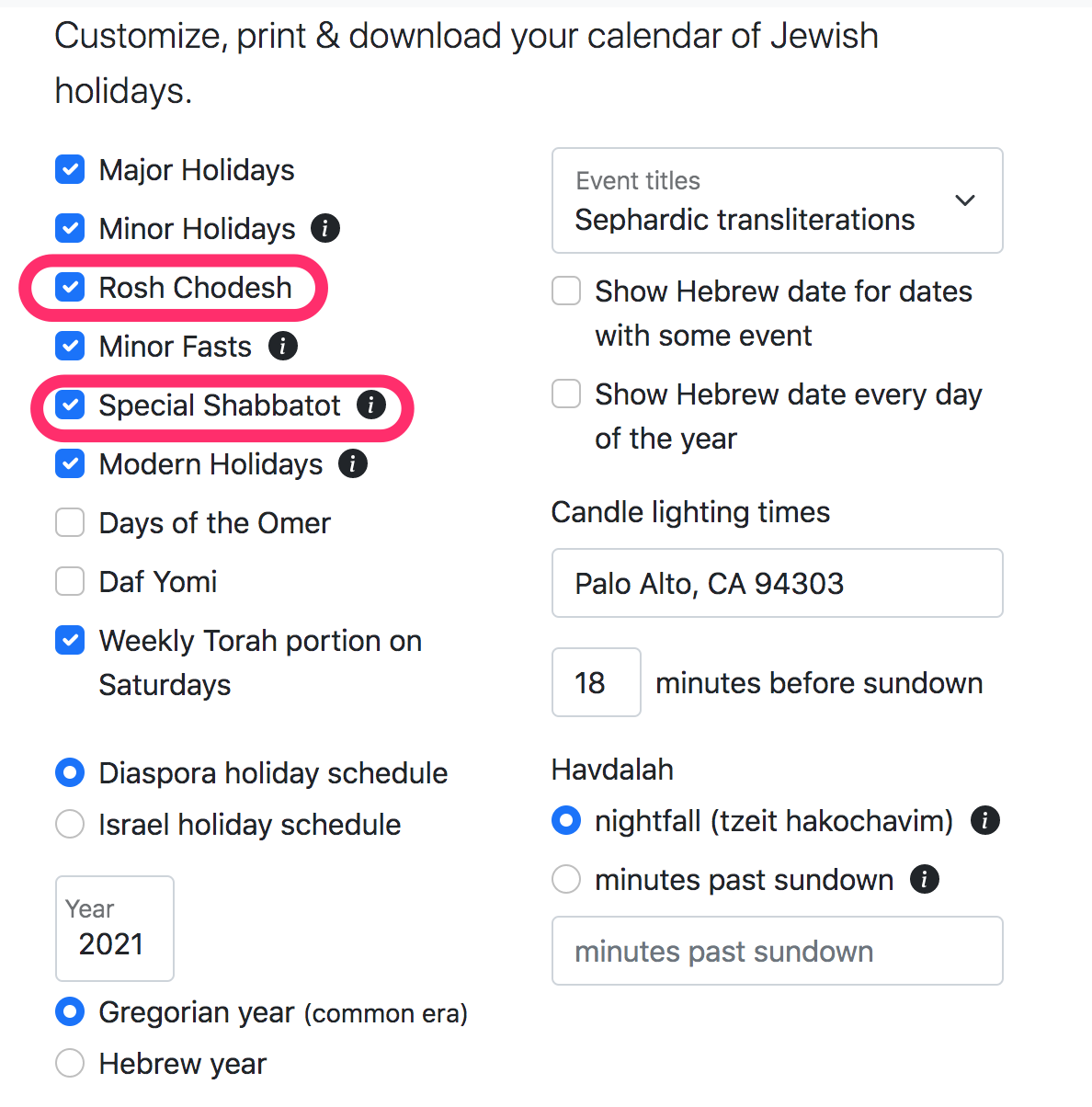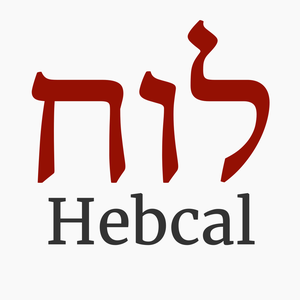Your comments
Generate a list of Yahrzeit dates, Hebrew Birthdays, or Hebrew Anniversaries at https://www.hebcal.com/yahrzeit
In the form, enter the date of death. After you generate a personal anniversary calendar, you will be able to print, subscribe to annual email reminders, or download a multi-year calendar feed to Apple, Google, Outlook, and other calendar apps.
We've released some experimental support for an API here.
Documentation is forthcoming, but the basic idea is that you'll need to POST x-www-form-urlencoded data to https://www.hebcal.com/yahrzeit with the special parameter cfg=json
For example:
curl 'https://www.hebcal.com/yahrzeit' \
-H 'content-type: application/x-www-form-urlencoded' \
--data-raw 'cfg=json&n1=Example1&t1=Birthday&d1=15&m1=4&y1=1983&s1=on&n2=Example2&t2=Yahrzeit&d2=13&m2=11&y2=2008&s2=off&hebdate=on&years=20&v=yahrzeit' \
--compressed
Shabbat Shirah is now listed among the "Special Shabbat" holidays on Hebcal.com
Hi Steven, thanks for catching this bug. The logic for picking today's date when there is no start, end or date parameter was defaulting to today's date in UTC instead of the date at the timezone based on the location.
The issue has been fixed now and those different URLs should give consistent results.
You can always specify an explicit date like https://www.hebcal.com/zmanim?cfg=json&zip=60613&date=2021-03-12 if you don't want the implicit "today" feature.
Hi, thanks for the generous offer! We'd love your help to offer a Portuguese transliteration.
You can use a tool like Poedit to create the translation file https://poedit.net/
We suggest you download a file like the Spanish language translation, and rename it "pt.po" and then make your edits there. Once you've finished, you can email the file to webmaster@hebcal.com and we will incorporate it into the website within a few days.
https://raw.githubusercontent.com/hebcal/hebcal-locales/master/po/es.po
Hi, thanks for using Hebcal.
Yahrzeit refers to the anniversary, according to the Hebrew calendar, of the day of death of a loved one. Alternative spellings include yahrtzeit, yortsayt, and yartzeit. On the anniversary of a death, it is the custom to light a candle to commemorate the departure of a loved one. [1]
In the form, enter the date of death (or birth or anniversary). Use the "+ Add another name" button at the bottom of the page to add additional names. After you generate a personal anniversary calendar, you will be able to print, subscribe to annual email reminders, or download a multi-year calendar feed to Apple, Google, Outlook, or other web, desktop and mobile calendar apps.
Hi, thanks for the suggestion!
We don't yet offer a REST API for this, but this is a very good idea. We'd like to implement this feature but it will take some time to do so.
In the meantime, if your system is built in JavaScript, you can use the @hebcal/core NPM package to do the Yahrzeit conversions
Hi, thanks for using Hebcal!
Molad details are included on our .ics calendar export (for Google, Apple, and Microsoft Outlook 2007 and later) if you create a custom calendar at https://www.hebcal.com/hebcal and you check both "Special Shabbatot" and "Rosh Chodesh".
You'll see the molad details in the notes/description section in each "Shabbat Mevarchim Chodesh" event


Hi, thanks for using Hebcal.
Can you check your candle lighting times and confirm you are using 18 minutes before sundown? This is the Hebcal default but you may have set it to another value, for example 38 minutes before sundown.
Customer support service by UserEcho


Hi, thanks for using Hebcal!
https://www.hebcal.com/holidays/sukkot
Sukkot (Feast of Booths) for Hebrew Year 5782 begins at sundown on Monday, 20 September 2021 and ends at nightfall on Monday, 27 September 2021.
Sukkot (Hebrew: סוכות or סֻכּוֹת, sukkōt, or sukkos, Feast of Booths, Feast of Tabernacles) is a Biblical holiday celebrated on the 15th day of the month of Tishrei (late September to late October). It is one of the three biblically mandated festivals Shalosh regalim on which Jews were commanded to make a pilgrimage to the Temple in Jerusalem.